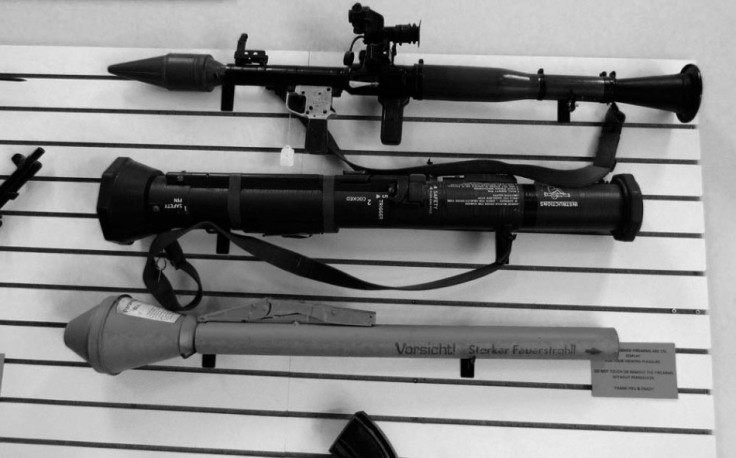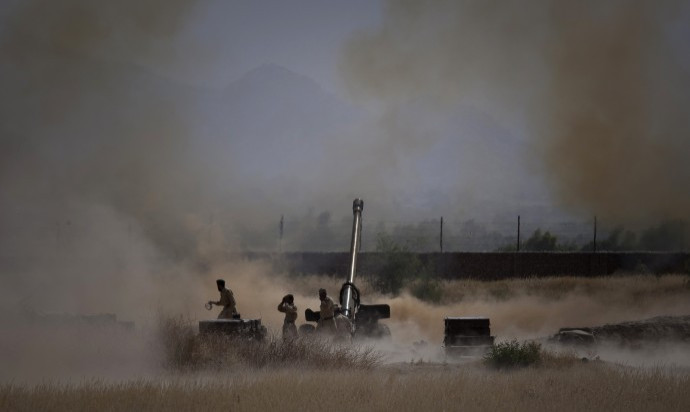NGOs Up In Arms as BAE Systems Claims Arms Trade Treaty Won't Impact Its Business

The chairman of Europe's biggest arms manufacturer BAE Systems has told its AGM that the incoming Arms Trade Treaty will have no impact on its business.
Roger Carr suggested that BAE Systems, as a "responsible company", already satisfies the requirements of the arms regulations of the UK government, which has signed the ATT.
The comments have prompted NGOs to question the treaty's validity.
Andrew Smith of the Campaign Against Arms Trade said that "If it has the support of arms dealers like BAE Systems then people have to question how strong it can really be".
The ATT, sponsored by the United Nations Office for Disarmament Affairs, was adopted by the UN General Assembly in April 2013 and is designed to "prevent and eradicate the illicit trade in conventional arms and prevent their diversion".
Companies themselves don't sign up for the treaty, it is for governments only. If a government agrees to the terms of the treaty, arms companies and individuals within its jurisdiction must abide by these terms.
The ATT has faced opposition in the US, where pro-gun lobbyists have stated that it is in conflict with the Second Amendment of the Constitution and the right to "keep and bear arms".
A number of NGOs, including Oxfam and Amnesty International, have strongly supported the treaty, but others have slammed it for safeguarding the commercial interests of arms dealers.
The treaty pledges to recognise the "commercial interests of states in the international trade in conventional arms".
The UNODA says the treaty will not "interfere with domestic arms commerce or the right to bear arms in member states; ban the export of any type of weapon; harm states' legitimate right to self-defence; or undermine national arms regulation standards already in place".
Signees must establish and maintain controls over the export of parts or components used in: battle tanks; armoured combat vehicles; large-calibre artillery systems; combat aircraft; attack helicopters; warships; missiles and missile launchers; and small arms and light weapons

Smith suggested that the treaty should restrict the countries with which arms exporters can do business and that it should be more stringent than existing regulation.
He said: "Any treaty has to have teeth. It has to be stricter than the current legislation which affects countries like the UK. A large part of the problem is government policy. The UK awarded £1.6bn of military licenses to Saudi Arabia last year, one of the most oppressive states in the world.
"Any meaningful arms treaty has to stop this from happening. The current one gives a fig leaf of respectability to arms dealers: it gives them something to hide behind. It [the ATT] isn't going to have any meaningful impact on the way arms companies they do business. It isn't going to change the way military licenses are being awarded to oppressive states."
BAE Systems issued the following statement in response: "We welcome the recent Arms Trade Treaty agreed by the United Nations and have been actively involved with government authorities and trade bodies for a number of years in providing input and support for the Treaty. The Treaty provides an important framework for well-regulated defence trade and the reduction of illegal arms sales around the world."
The ATT has been signed by 118 countries and ratified by 31. In the UN General Assembly, 154 members voted in favour of it, with 23 abstaining and three voting against. The three were Iran, North Korea and Syria.
The treaty is expected to be ratified in full over the next few months.
It would be the first legally binding international regulation for the arms trade and was launched by Oxfam and the Control Arms coalition more than 10 years ago.
Oxfam says the ATT will save lives and help eradicate poverty. "The poorly regulated arms trade impedes socio-economic development. It is estimated that armed violence costs Africa $18bn per year," reads the charity's website.
The US Department of Commerce says the arms trade accounts for 50% of the world's corrupt transactions. This is despite the fact that the arms trade represents less than 1% of global trade.
© Copyright IBTimes 2025. All rights reserved.






















